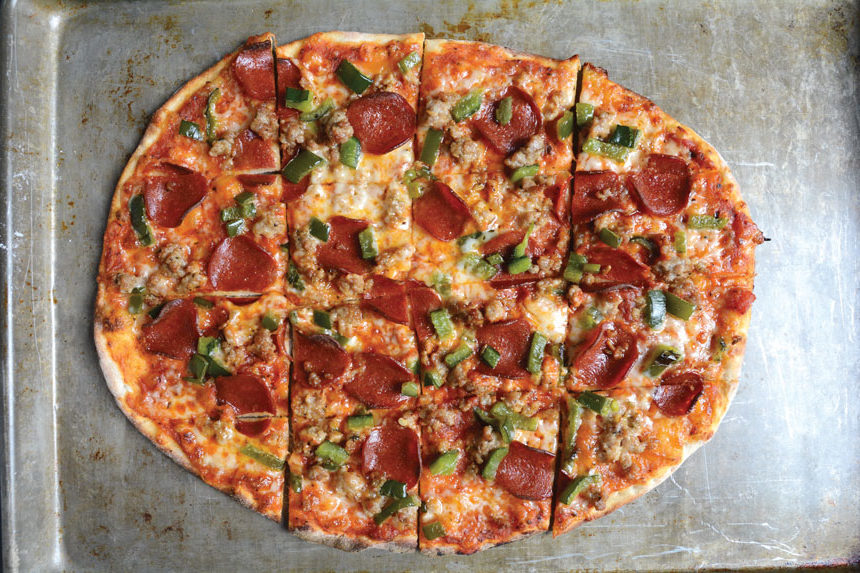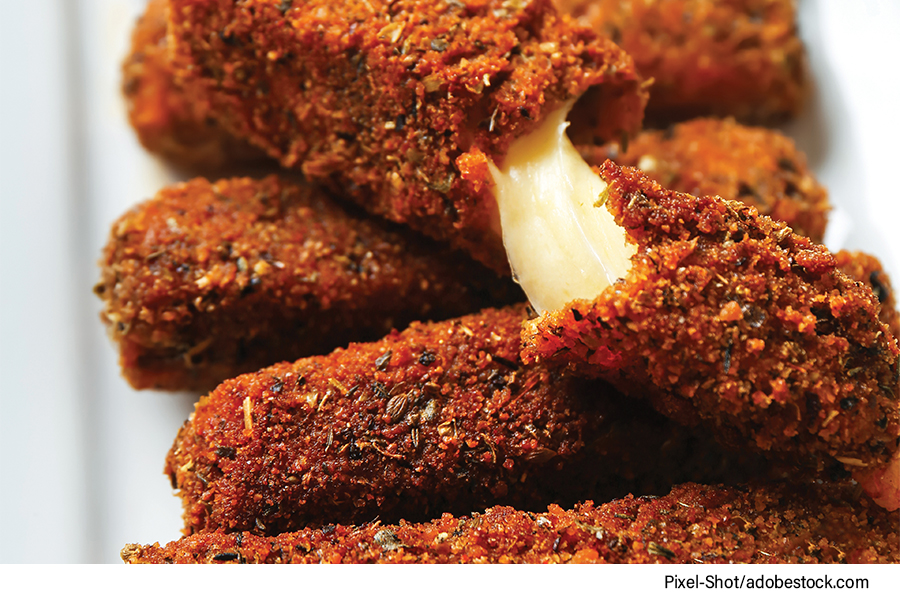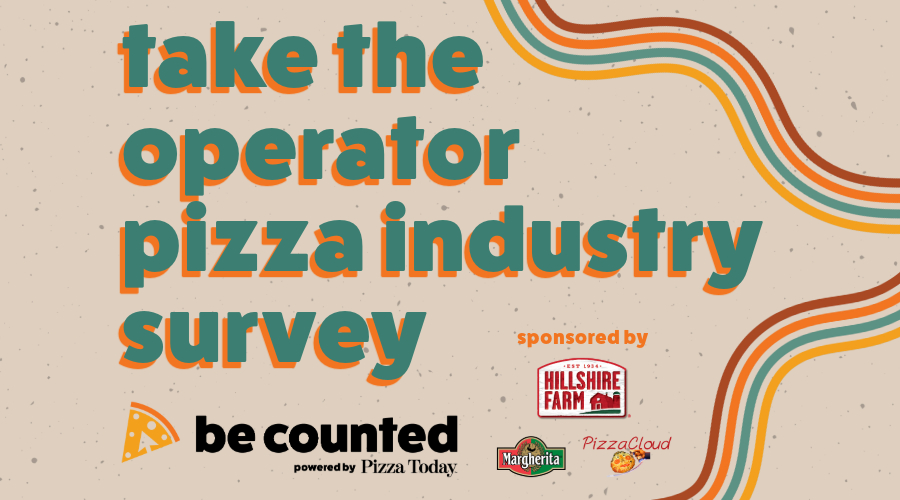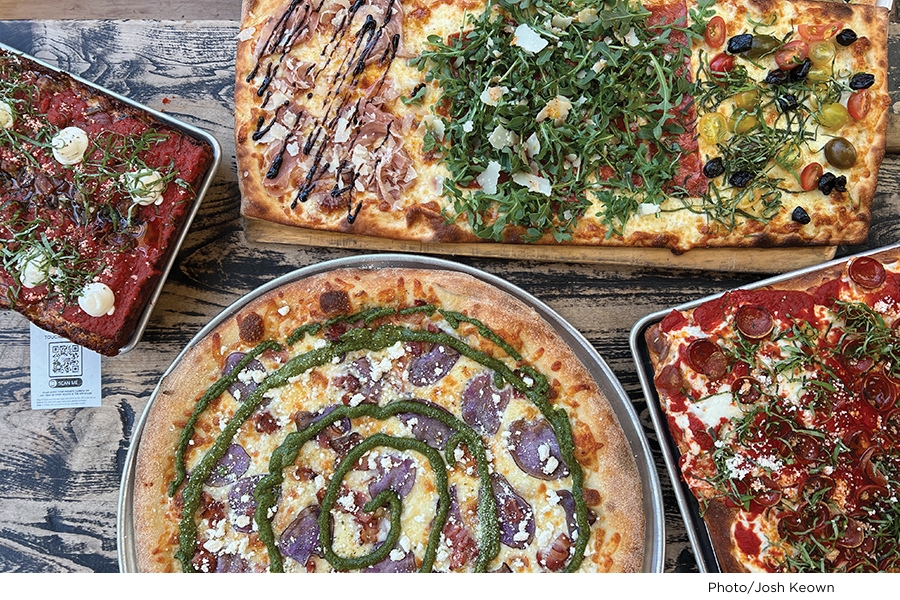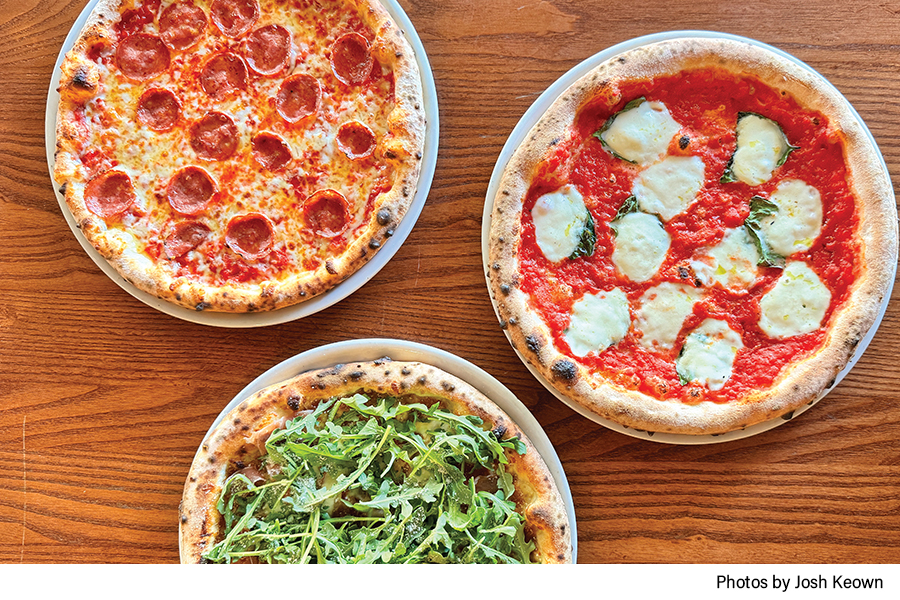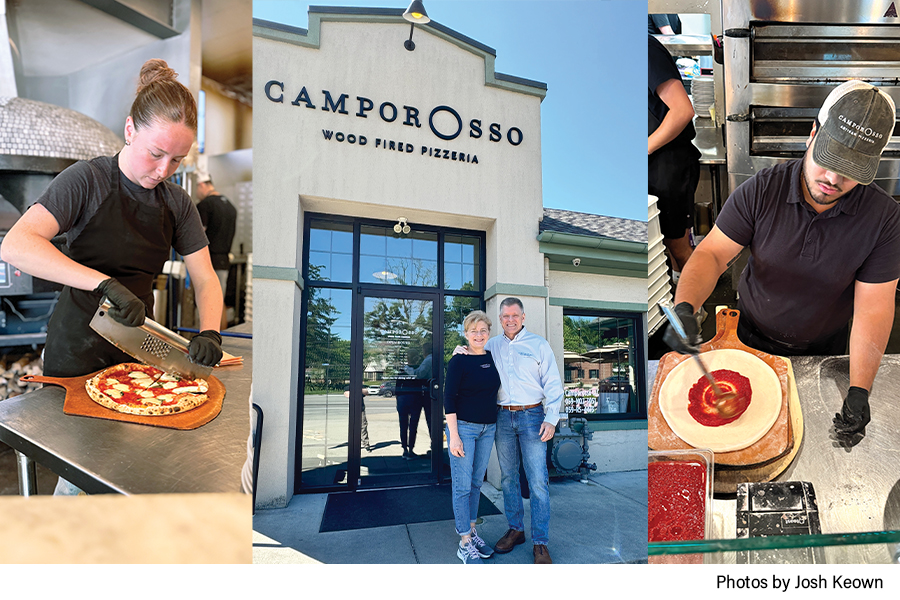A Quick Q&A with Thomas McNaughton and Ryan Pollnow, co-founders at Flour + Water, San Francisco, California
Concept:
THOMAS: For Flour + Water Pizzeria, we pulled inspiration from the pizzerias we all grew up frequenting. We wanted to play off that nostalgia with fun menu items like mozzarella sticks and Hawaiian pizza, while still putting a heavy emphasis on technique and recipes that showcase our team’s culinary approach and obsession with pizza. While we take our dough seriously, the experience is meant to be like a pizza party every night. It’s one of the best foods to enjoy with a group, so we created a space that’s inviting and relaxed.
Pizza Style & Dough:
RYAN: Our dough is a four-day process that uses a pre-ferment, known as a poolish, to kick start fermentation. We use a combination of two different types of flour from Central Milling and rely on a slow, cold fermentation until a final proof on day four when the dough’s ready to use. Our pizzas are 13-inch rounds that get fired in an electric deck oven set to 600 F. The dough recipe and oven temperature settings allow us to get the characteristics that we love in pizza. We look for variation in the char of the outside crust, while maintaining structure on the base of each pie.
You moved into a new flagship location. How has that enabled your business to grow?
THOMAS: We spent a long time searching for the perfect space for our operation and couldn’t be happier with where we landed in North Beach, a San Francisco neighborhood known for its long lineage of Italian restaurants. Being able to take the time and build out the Pizzeria to our exact specifications has proven to be worth it. We have an entirely separate operation dedicated to to-go orders and delivery so that our dining room isn’t interrupted by that action. Our Dough Room is the heart of the space, and was built to accomodate a larger team while maximizing dough production to fuel our to-go program and the expansion of the Flour + Water Pizza Shop concept. Every night we’re also able to transition the Dough Room into a semi-private dining room for seated and standing pizza parties; it’s also a space where we can host private pizza classes during the week.
Tell us more about the neighborhood pizzeria model you are working to expand?
THOMAS: We’ve mapped out a hub and spoke model for the Pizzeria. Our 4,000 square-foot flagship space in North Beach will soon be the commissary for satellite ‘Pizza Shop’ locations, meaning we can focus on finding smaller spaces where we don’t have to produce the dough on-site, but can still serve new neighborhoods and, ultimately, new cities. The look and feel of the flagship will carry over, but the emphasis will be less on dine-in and more on bringing our pizza to areas where it wasn’t able to be picked up or delivered before.
You also have a commercial pasta line. What has it taken for you to get your pasta in hundreds of grocery stores?
RYAN: The learning curve from operating restaurants to diving into the world of consumer packaged goods is no joke! We’ve been planning this project for years, thinking of ways in which we can extend the reach of our hospitality knowing that not everyone will be able to visit our restaurants. It’s awesome to see Flour + Water Foods on shelves at not only our local retailers in the Bay Area, but at grocery stores throughout the Pacific Northwest and, soon, Southern California. We’re also shipping our pasta for online orders, so even those outside the West Coast have been able to experience a taste of what we do at our restaurants. While we’re still a little fish in the big pond of this space, it’s been awesome to receive feedback about the quality and superior texture. We’re applying the same techniques we use in our restaurants, so consumers can feel confident that what they are buying truly is ‘chef-tested.’
Tell us more about how Flour + Water supports the regenerative farming movement?
RYAN: Our restaurants were founding members of Zero Foodprint, a nonprofit mobilizing the food world around agricultural climate solutions, and our dried pasta line is their first partner in the packaged goods world. From an operational standpoint, we care tremendously about sourcing from farms with sustainable and regenerative practices– we believe that healthy soil means higher-quality produce, which in turn creates food that not only tastes better, but is better for the planet, too.



